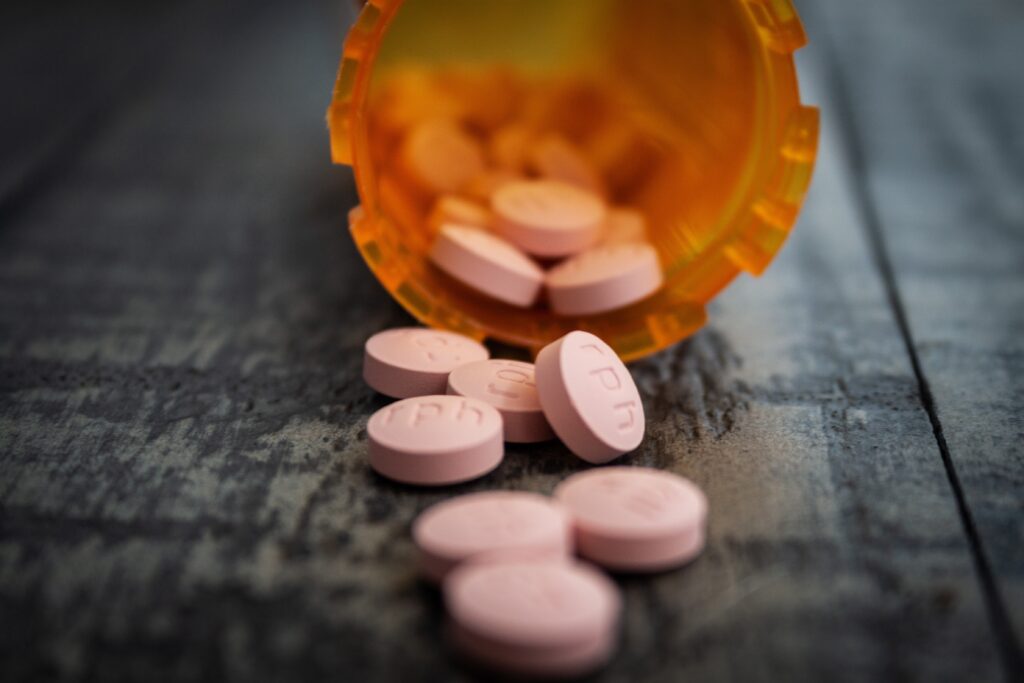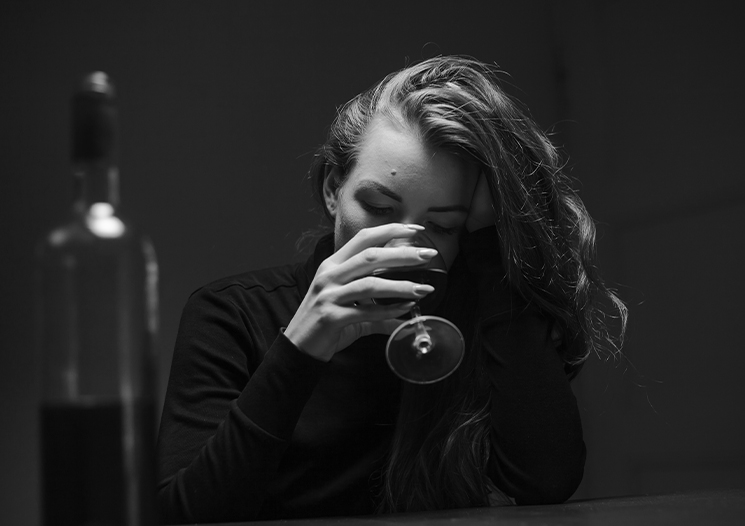Home » Addictions We Treat » Alcohol Addiction » The Effects of Mixing Alcohol and Drugs » Dangers of Mixing Prozac and Alcohol
Mixing Prozac and Alcohol
Prozac is a medication commonly prescribed for depression, and the combination of Prozac and alcohol can pose significant risks to your health and well-being.
This guide illustrates the following key issues:
- Can you mix Prozac and alcohol?
- Can you drink alcohol on Prozac in moderation?
- What are the side effects of Prozac and alcohol?
What are the long-term effects of Prozac and alcohol
- Can Prozac and alcohol kill you?
- How can you connect with substance abuse treatment in Southern California?

The Dangers of Mixing Prozac and Alcohol
Mixing Prozac, an FDA-approved medication commonly indicated to treat depression and other mental health conditions, with alcohol can result in a range of dangers and potential complications.
There are many Prozac and alcohol side effects. Mixing Prozac and alcohol can magnify these effects.
Both alcohol and Prozac are central nervous system depressants. Mixing alcohol with Prozac can amplify the depressive effects on the brain, leading to excessive sedation, drowsiness, Prozac and alcohol blackouts, and impaired cognitive function. This can impair coordination, judgment, and reaction times, increasing the risk of accidents or injuries.
Alcohol is a known depressant, and consuming it while taking Prozac, an antidepressant, can interfere with the effectiveness of the medication. It may counteract the positive effects of Prozac in stabilizing mood and managing symptoms of depression, anxiety, or other mental health conditions. This can result in worsened mental health symptoms and hinder the overall therapeutic outcome.
Prozac works by increasing the levels of serotonin, a neurotransmitter, in the brain. Alcohol consumption can also affect serotonin levels. When combined, there is an increased risk of developing serotonin syndrome, a potentially life-threatening condition characterized by symptoms such as agitation, confusion, rapid heartbeat, increased body temperature, and muscle rigidity. Prompt medical attention is crucial if serotonin syndrome is suspected.
Both Prozac and alcohol are metabolized in the liver. Using them together can put additional strain on the liver and impair its ability to process these substances effectively. Prolonged and excessive alcohol use, in particular, can lead to liver damage or liver disease, which can further complicate the metabolism of Prozac and increase the risk of adverse effects.
Prozac alcohol can independently cause a range of side effects. When combined, the likelihood and severity of these side effects may increase. Some common side effects include drowsiness, dizziness, gastrointestinal disturbances, changes in appetite, and changes in sexual function. Mixing Prozac and alcohol can intensify these side effects and create an overall unpleasant and potentially harmful experience.
Individual Prozac and alcohol interactions may vary, and the severity of the dangers can depend on factors such as the dosage of Prozac, the amount of alcohol consumed, and individual tolerance levels. However, to prioritize your health and safety, it is strongly advisable to avoid mixing Prozac and alcohol. If you have any concerns or questions regarding the use of Prozac or alcohol, consult with your healthcare provider. They can provide you with personalized advice based on your specific situation and guide you towards the most appropriate course of action.



Side Effects of Prozac and Alcohol Combination
Combining Prozac, a medication commonly prescribed for depression and other mental health conditions, with alcohol can result in various side effects. An awareness of these potential effects can guide making informed decisions regarding the use of Prozac and alcohol.
Here are some common side effects that may arise from the Prozac and alcohol interaction:
Prozac and alcohol can individually cause drowsiness and fatigue. When combined, these effects can be intensified, leading to excessive sleepiness, difficulty staying awake, and reduced alertness. This can significantly impact daily functioning and may pose risks, particularly when engaging in activities that require focus and attention.
Both Prozac and alcohol can impair cognitive abilities, including memory, concentration, and judgment. When used together, these effects may become more pronounced, making it challenging to think clearly, make rational decisions, or perform tasks that require mental acuity.
Prozac and alcohol can both contribute to gastrointestinal disturbances. These may include nausea, vomiting, diarrhea, or stomach discomfort. When combined, the likelihood and severity of these digestive issues may increase, leading to discomfort and potential dehydration.
Mixing Prozac and alcohol can disrupt the intended mood stabilization effects of the medication. Alcohol is known to impact mood, often leading to emotional volatility, increased irritability, or even depressive symptoms. Combining it with Prozac can further exacerbate these mood swings and create emotional instability.
Both Prozac and alcohol have the potential to cause sexual side effects. Prozac may lead to decreased libido, difficulties in achieving orgasm, or other sexual dysfunctions. Alcohol can also impair sexual function and decrease sexual desire. When combined, these effects may be intensified, further contributing to sexual difficulties.
Prozac is used to treat depression and other mental health conditions, but alcohol can worsen depressive symptoms and increase the risk of suicidal thoughts or behaviors. Combining Prozac and alcohol may heighten this risk, especially in those already vulnerable to such thoughts or with a history of mental health disorders.
Individual experiences may vary, and the severity of these side effects can depend on factors such as the dosage of Prozac, the amount of alcohol consumed, and individual sensitivity. However, to minimize potential risks and ensure the most effective treatment, avoid the combination of Prozac and alcohol.
Get Treatment for Prozac and Alcohol Addiction at Gratitude Lodge
At Gratitude Lodge in Southern California, we understand the challenges of Prozac addiction and alcohol addiction, and we are here to provide support. Our pet-friendly rehab centers located in Newport Beach and Long Beach, CA, are equipped to address both Prozac and alcohol addiction, alongside mental health conditions.
We offer a specialized medical detox program at Gratitude Lodge, ensuring a safe and smooth transition from Prozac withdrawal and alcohol addiction to ongoing recovery. After detoxification, you can seamlessly enter our 30-day inpatient program, where you will receive comprehensive care and support.
Our treatment programs for Prozac and alcohol addiction encompass a range of evidence-based interventions, including MAT (medication-assisted treatment), psychotherapy, group therapy, individual counseling, family therapy, holistic therapies, and aftercare services. We believe in a holistic approach to address the complex nature of dual addiction and support individuals in achieving sustained recovery.
To take the step from active Prozac and alcohol addiction to ongoing recovery, you can trust Gratitude Lodge. For admissions and more information, please call us at 800-994-2184.

FAQs
It is recommended to avoid drinking alcohol while taking Prozac due to the potential alcohol and Prozac interaction and increased risks of side effects.
It is advisable to wait at least several hours after taking Prozac before consuming alcohol to allow the medication to be metabolized and minimize potential interactions.
Besides alcohol, it is important to avoid certain substances like illicit drugs, herbal supplements, and other medications that may interact with Prozac. Additionally, grapefruit or grapefruit juice should be avoided as they may affect the metabolism of Prozac.
It is recommended to avoid drinking alcohol while taking any antidepressant medication. Consult with a healthcare provider who can provide personalized advice based on your specific situation and the specific antidepressant being prescribed.
Mixing Prozac and alcohol can potentially inflame feelings of anxiety. Both substances affect neurotransmitters in the brain and combining them can disrupt the balance and lead to increased anxiety or heightened feelings of restlessness.
It is not recommended to skip a dose of Prozac to drink alcohol. Consistency in taking medication is important for achieving optimal therapeutic benefits. Skipping doses or altering the prescribed schedule can impact the effectiveness of Prozac and may not provide the desired outcomes.
While occasional drinking on Prozac may not necessarily cause severe interactions, it is generally advised to avoid alcohol altogether or drink in moderation. It is essential to discuss your alcohol consumption with your healthcare provider, as they can provide personalized guidance based on your specific condition and medication regimen.
Our Partners

















